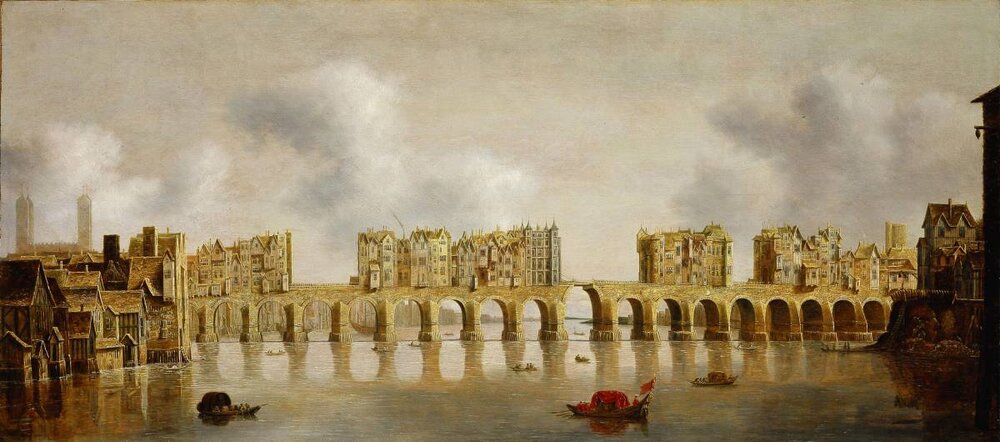May 12th 1471: Assault on London Bridge

Old London Bridge from the West
(Claude de Jongh: Source)
Meanwhile in Kent, Thomas, the Bastard of Fauconberg, was recruiting the next wave of opposition to the Yorkists. He had had great success in Canterbury, where Nicholas Faunt, the Mayor, had been a Warwick supporter. He had, by now, recruited some two or three thousand seasoned troops. He moved on to Sittingbourne, intending to join with supporters from north of the Thames in Essex.
He wrote to the Mayor and Aldermen of London as ‘Captain and leader of our Liege Lord King Henry’s people in Kent’. He requested that his host be given free passage through the City to shorten their route to ‘seek out the usurper’. He gave his guarantee that his men would not rob and despoil the City, and that anyone who did would be punished according to his offences. He asked for a reply by the time he got to Blackheath.
As Earl Rivers and the Earl of Essex, prominent supporters of King Edward, were both in the City of London, the request never going to be agreed. Fauconberg seems to have been completely unaware of the events of the past month. He got a very prompt, and detailed, reply which firmly rejected the request. They had been commanded by King Edward that ‘to let no one of any degree condition or estate whereof gathering or making assemblies of any people contrary to his laws without authority of his high commandment’. This certainly included Fauconberg and his host. They went on to explain that the world was not as Fauconberg imagined it to be; Warwick was dead and, according to recent news from Tewkesbury, ‘Edward called Prince’ had also been killed. They advised Fauconberg to surrender and disband his troops, promising to intercede with King Edward if he did.
Fauconberg ignored this, and tried his hand at a direct assault on London. On Sunday 12th May, his fleet arrived at the Tower of London and his soldiers at the Southwark end of the London Bridge. They began an assault.
The Alderman were ready for the defence of the city, well aware that if the rebels gained access they would be joined by all manner of malcontents within the city. The Bridge House records record expenditure made by the Wardens. They include forty-one yards of canvas, soaked in vinegar, to hang across the drawbridge gate as a defence against ‘wild fire’. They bought twelve new bows and fifty-one sheafs of arrows. Guns and gunners were brought from the Guildhall, and a troop of liverymen as the principal defence. The drawbridge was raised and four holes cut into it for the guns to use.
The rebels attacked the bridge and notwithstanding precautions set fire to the ‘Great Stone Gate’, at the southern end of the bridge, but went no further. In a second attack, men were ferried to the north bank, incurring the wrath of the citizens by torching a number of beer houses in St Katherine’s, outside the city walls, possibly to give a clear field of fire for the guns.
The day was won by the Aldermen, though it was said that the attack was half-hearted and possibly simply probing the defences. Fauconberg took his men westward, looking for another means of joining with the men of Essex.


No comments:
Post a Comment